Master Class Guide to Proseco Celebrates National Prosecco Week
The Prosecco DOC Consortium presented a Prosecco DOC Masterclass as part of National Prosecco Week although it turns out that, just as with French champagne and Spanish Cava these days, “any time” is the right time to drink Prosecco, and not just in the well-known Brunch Bellini. Versatile Prosecco also pairs perfectly with more casual dishes and less expensive than Champagne. See below for a current, popular recipe. For more detailed information about prosecco’s history, please see: (//www.casaprosecco.com)
Proof was in the collection of nine Prosecco Doc labels, ranging from traditional to innovative, that represented the unique terroir of the northern Italian provinces. Proof is in the factor that it has become such a major export that 75% of the nearly five million bottles produced last year in Italy were exported. And close to 20% of the bottles were delivered to the US.
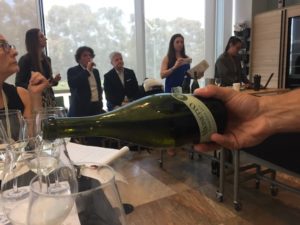
A number of experts were on hand to weigh in on the class content. Italians take their wines very seriously, and a great deal of effort goes into standards for terroir identification and care plus authenticity.
Prosecco is categorized as a spumante, or “sparkling wine.” It is named after the region after the Italian village of Prosecco near Trieste, considered to be the original region of the grape, and where Prosecco was first made thousands of years ago, and seriously developed since 1754. The designation name was so misused, however, that the identifying grapes are known as Glera Grapes. To earn the Prosecco designation, there must 75% glare grapes. Those approved grapes can be Verdiso, Bianchetta Trevigniana, Perera, chardonnay, Pinto Bianco, Pinot Grigio and Pinot Noir.
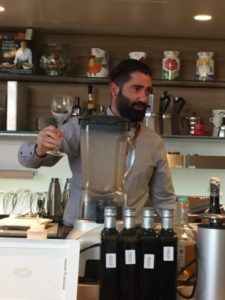
The tulip shaped glass with a wider top is the one preferred to capture the essence and the taste of Prosecco
The most important lesson in this master class is the DOC designation, which proved that the Prosecco you are purchasing is genuine; there are so many non-genuine brands that the leader. The DOC label proves its authenticity. This is especially important to note because so many prosecco wines are not in supermarkets and restaurants.
These days the Venetian spritz has become a popular cocktail, especially in in the north of Italy.
We were also given proof of the wonderful pairing qualities of the prosecco with casual pizza prepared by Scolia Restaurant/Eataly Chef Ugoletti right before us in a performance kitchen. Chef Ugoletti showcased sweet, savory, earthy and bitter themes in his toppings to emphasis the versatility of the drink. We tried them with Zonin Brut, Valdo Brut, Le Contesse Brut, Villa Sandi Il Fresco Brut, Torresella Extra Dry, Villa degli Olmi Extra Dry, La Marca Extra Dry and Mionetto Organic Extra Dry.
Chef Fabio Ugoletti, Eataly’s chef de cuisine was as enthusiastic about his pizza Romana as the pairings. Slightly different than the highly vaunted Neapolitan thin-crust pizza, this one has a more bread crust that is pillowy inside and crunch at the bottom. The dough, which the chef showed us, is moister and the pizza is baked at a lower temperature than its Neapolitan counterpart.
The Romana style pizza is long and rectangular, cut into individual smaller rectangular servings, rather than the pie-shaped Neapolitan pizzas that are cut into wedges.
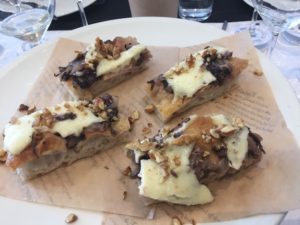
Prosecco was a match even for this slightly bitter radicchio pizza topping further balanced out by the creamy Asiago cheese and rich walnuts.
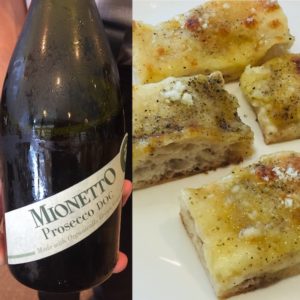
The Mionetto with a novel, sweet topping of wildflower honey, Pecorino cheese and black pepper. This with a salad would be a delightful brunch in itself.
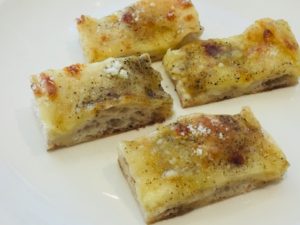
The fascinating characteristic about the chestnut honey is that it is sweet but the aftertaste is not sweet
For more information about prosecco, please see:
The Venetian Spritz is now overtaking the Bellinin in popularity. The spritz refers to any wine and soda topped drink made with bitter liqueur. It represents the Italian drinking tradition of an aperitivo: something light, effervescent and not too alcoholic to stimulate one’s appetite and conversation before a meal.This spritz can be made several ways, but the best and most common is simply a glass of prosecco with two or three ice cubes and a dash of sparkling water, topped with Aperol, a twist of lemon or slice of orange and — importantly and strangely — one green olive. Synchronistically one of the 10th Mountain Division descendants just back from Italy said this was her favorite drink when we met at a picnic.


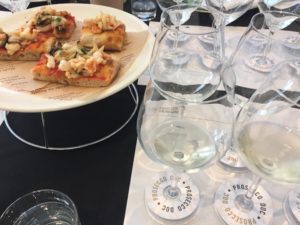

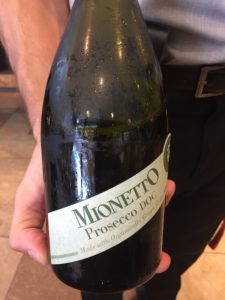
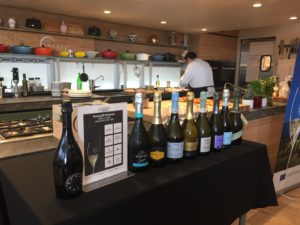
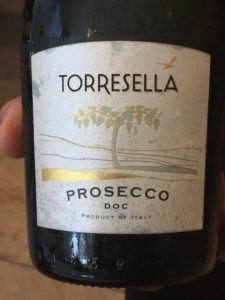
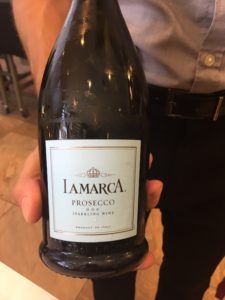
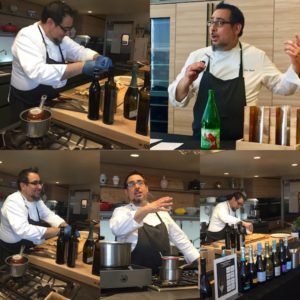
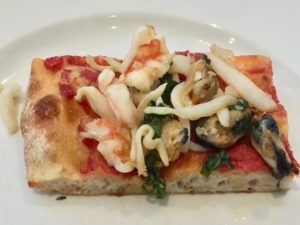
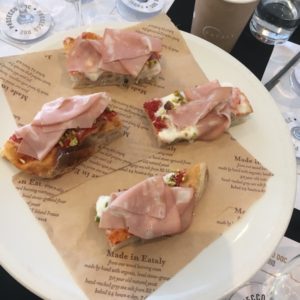
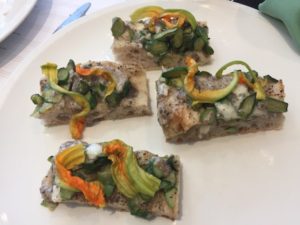

 Gerry Furth-Sides
Gerry Furth-Sides  Barbara Hansen
Barbara Hansen  Chef-owner Alain Cohen
Chef-owner Alain Cohen  Roberta Deen
Roberta Deen  Jose Martinez
Jose Martinez  Nivedita Basu
Nivedita Basu